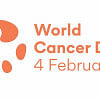Time to form a national cancer control strategy

We're alarmed by a recent report of the World Health Organization (WHO), published ahead of the World Cancer Day to be observed today, that paints a grim picture of cancer in Bangladesh. With the number of cancer patients steadily increasing, the country faces the daunting prospect of more than doubling the new cases recorded in 2022 by the time it reaches 2050. This demands immediate attention and action from the policymakers, medical authorities, and citizens.
Currently, despite the increasing burden of cancer, Bangladesh's response is plagued by a number of challenges and inadequacies. Key among them is the lack of a national cancer control strategy that will encompass detailed action plans, robust cancer registration and screening systems, standardised treatment and vaccination protocols, and so on. Bangladesh also lacks national data on cancer, hindering efforts to develop effective intervention strategies. Currently, experts say, only some hospital-based data are available. This is not enough. We must prioritise the collection and analysis of epidemiological data to better understand the scope of this disease within our borders, and the government must play a leading role in this regard.
It also has to address the general lack of awareness about the risks of cancer. Experts have identified several key contributing factors, such as consumption of adulterated and junk food, sedentary lifestyle, pollution, use of tobacco and alcohol, etc. Late screening—a common occurrence—can also exacerbate the risk of fatalities. All these issues need to be addressed if we want to reduce the risks of cancer. And nothing short of a strong commitment will be enough in this fight given the struggle we're witnessing across the world. Reportedly, there were an estimated 20 million new cancer cases and 9.7 million deaths in 2022. The WHO predicts that in 2050 the number of new cancer cases globally will reach 35 million, about 77 percent higher than the figure in 2022.
The path ahead is clearly daunting but we must confront it head-on. We urge the authorities to treat the threat of cancer with the seriousness that it deserves.


 For all latest news, follow The Daily Star's Google News channel.
For all latest news, follow The Daily Star's Google News channel. 










Comments